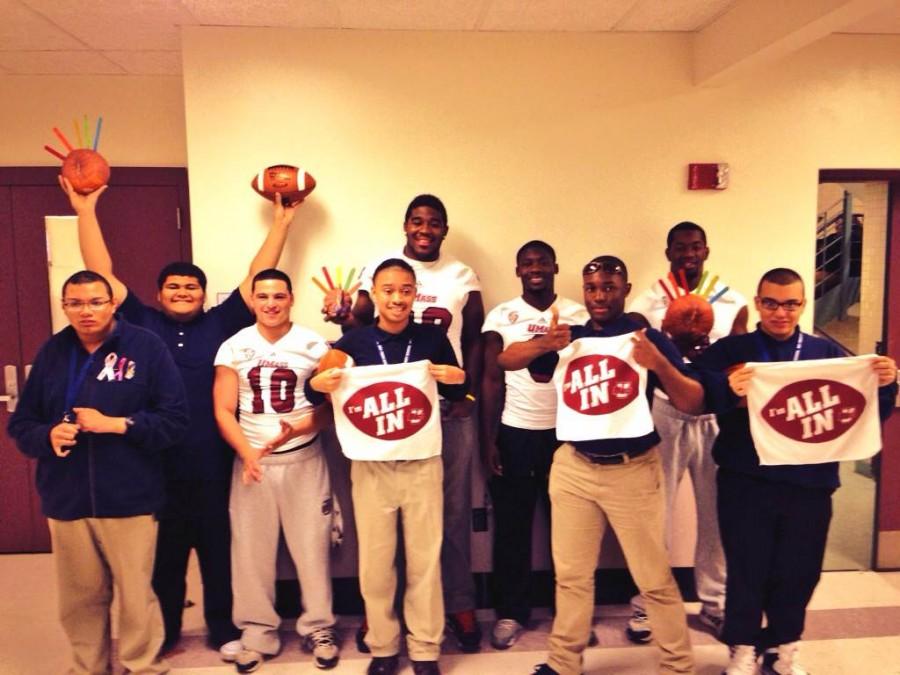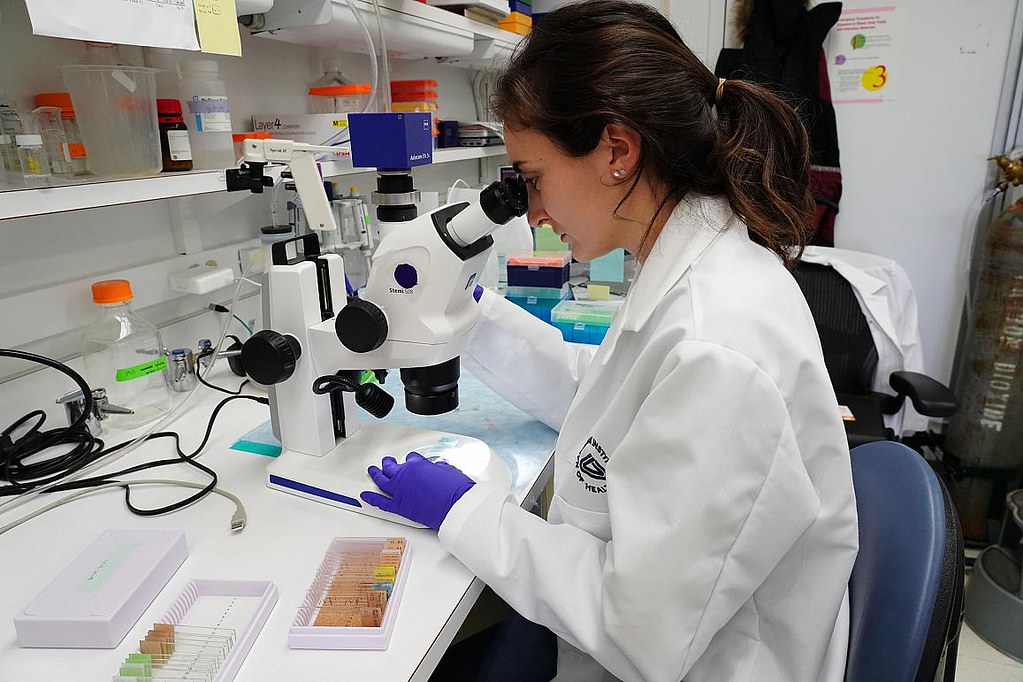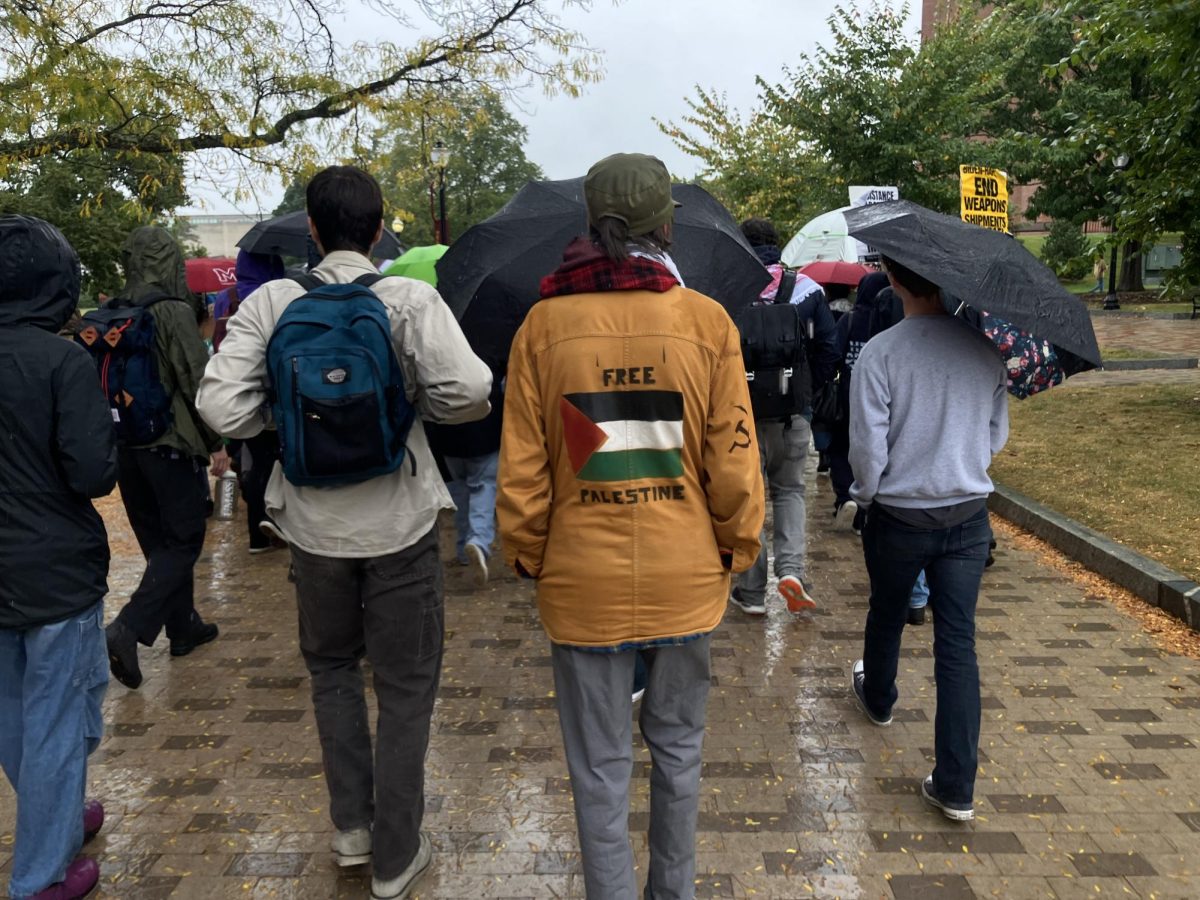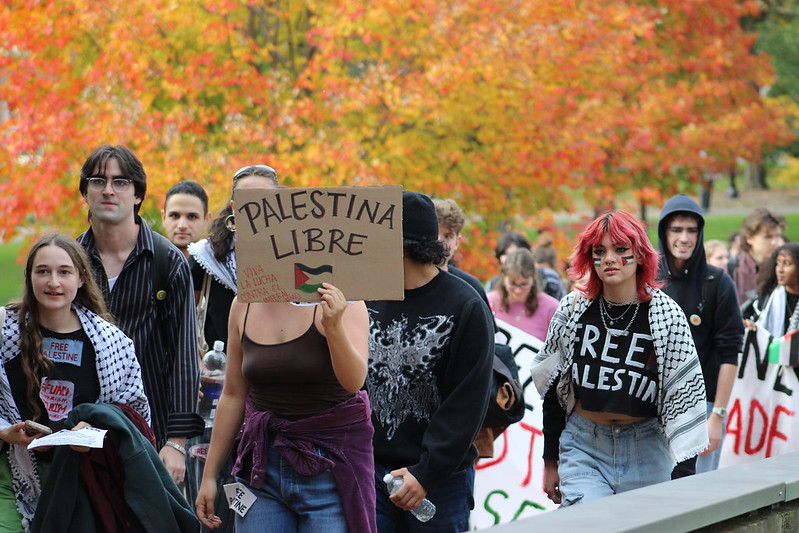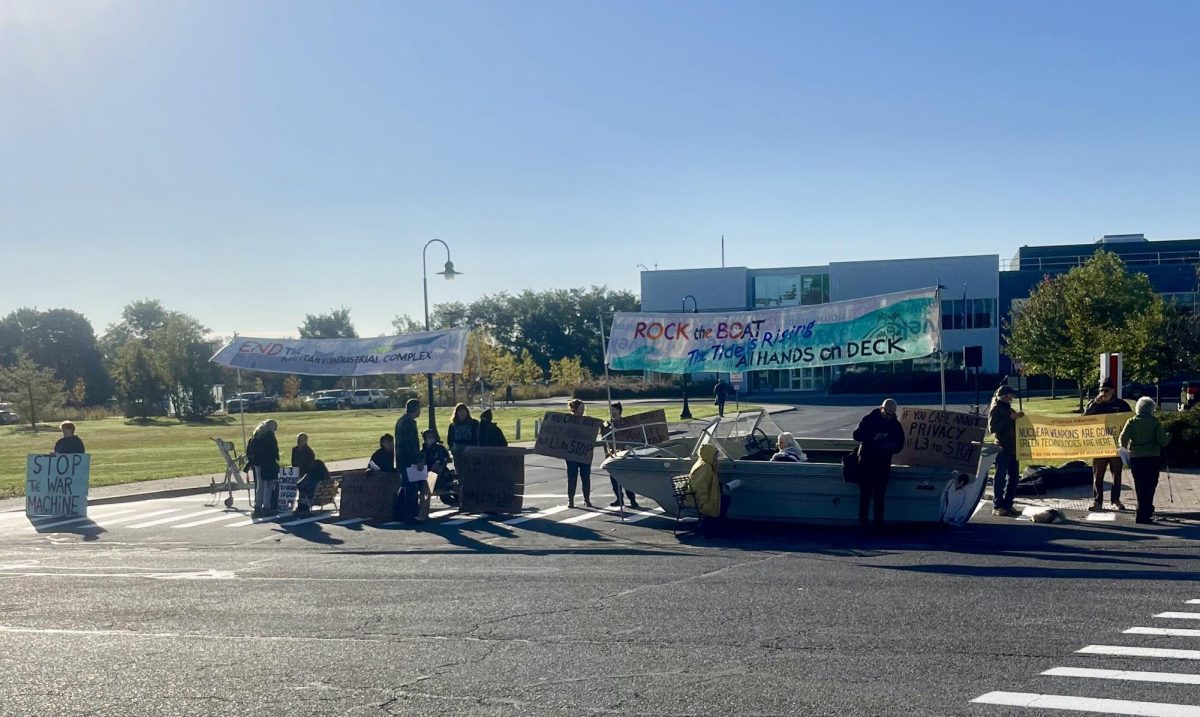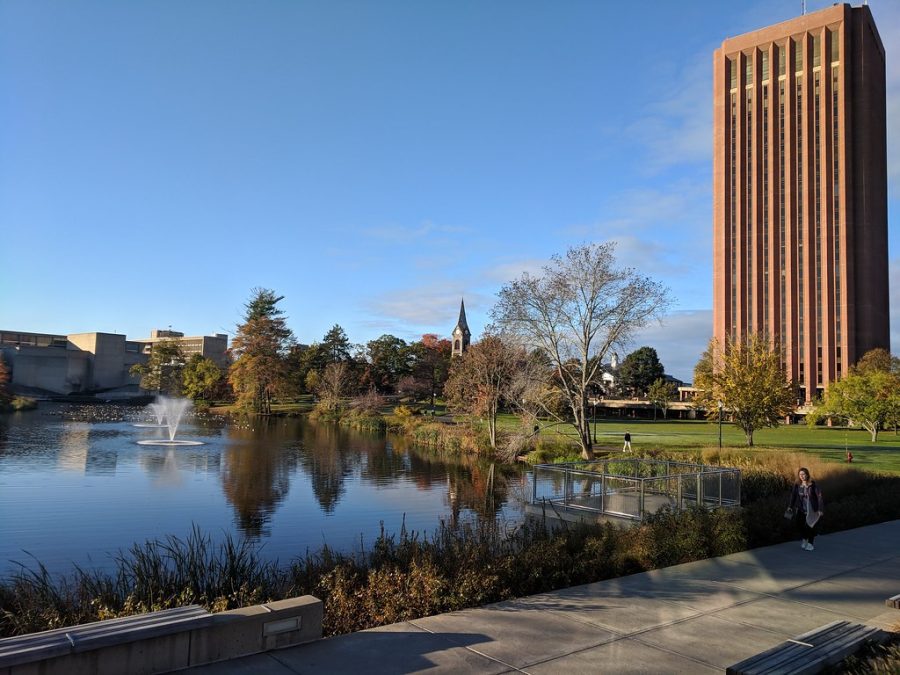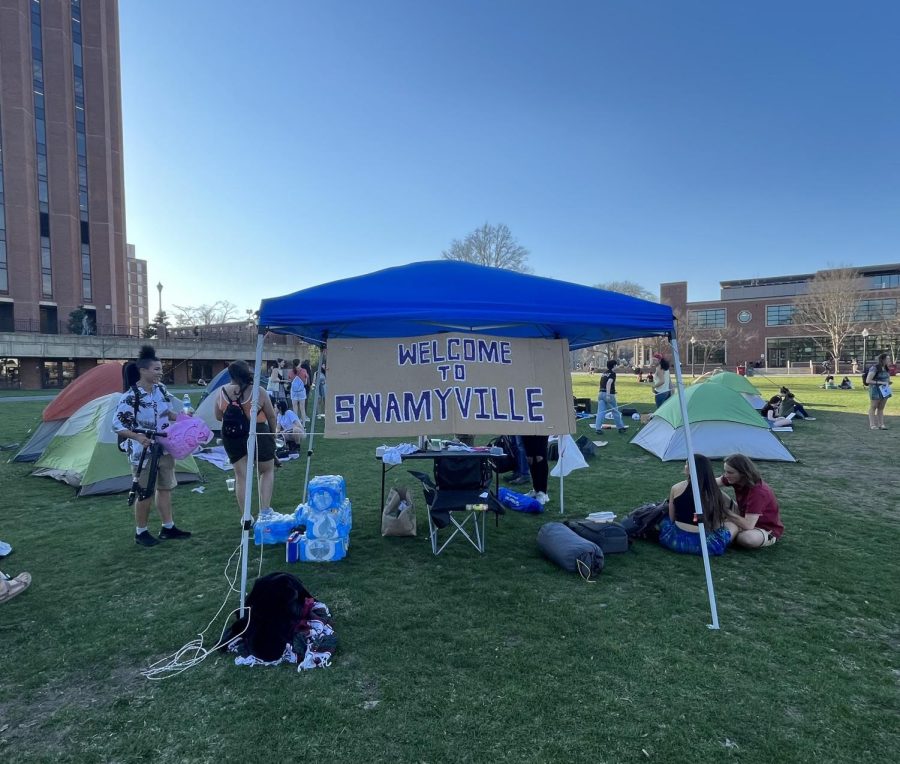by Rebecca Humphrey
As runners and walkers in support of the 6th Annual Autism Speaks U 5k/3k waited at the starting line, so did protesters. The fundraising event, which took place at Kendrick Park in Amherst on Sunday, April 6. was hosted by Autism Speaks U as well as collaborating sororities and fraternities in support of research for causes, preventions, treatments and possible cures for autism.
For protesters, the word in question is cure.
“Most of their funding goes towards a cure for autism, however, most of us don’t want a cure,” said protest organizer Rebecca Binns, “Instead of awareness we want acceptance.”
Binns believes in the neurodiversity model and accepts her autism as a variation in functioning rather than a mental disorder to be cured.
“It basically says that everyone’s brain is different and that’s okay, there is no need to change it,” said Binns.
For this reason, protesters encouraged people to support different groups that they believe focus on acceptance and understanding of autistic people such as The Autistic Self Advocacy Network and the Autism Women’s Network.
“I am actually autistic and Autism Speaks does not speak for me,” said Binns. “They speak for the parents of autistic children who feel like their kids are broken.”
Binns cited a video produced by Autism Speaks that deeply offends her. The video, Autism Every Day, reflects what it is like (for some) to have an autistic child. About six minutes into the video, a mother admits that she had contemplated carrying out a murder-suicide because of her child’s autism, in front of her autistic daughter.
The majority of the comments left under the video expressed disgust with Autism Speaks for supporting such a message. Youtube commenter, Maggie Taylor, wrote “It represents people with autism as burdens who are unfeeling towards others and that is not true,” said Taylor. “They think differently than neurotypical people, and different things affect them differently. I am autistic, but I can function normally. But that’s because I fall into one area of the spectrum. Every child is different. And most are capable of understanding other emotions and this is a horrible organization.”
The Vice President of Autism Speaks U and sophomore at The University of Massachusetts Amherst, Sian Wynter, said she could understand where the protesters were coming from but thought that they should consider the families with autistic children who do support Autism Speaks for their own reasons.
“Everyone has a different approach to autism and every family is going to be different,” said Wynter.
Jill Perreira, a resident of Lancaster Massachusetts, spoke in response to the protest and on behalf of her family and her brother William who has autism.
“It is such a diverse spectrum of disorders that there is still a lot of research to be done,” said Perreira. “The Autism Speaks organization states on the website that they fund research towards treatments and are aiming for a cure, and while a cure may be far off, it will not be a reality without discovering the cause and developing treatments.”
Perreira said that her family has worked more with the Autism Resource Center in support of events that are aimed towards autism awareness.
“To address the protesting, awareness is obviously a great cause and helps a lot of the people who are diagnosed and live with the disorder now,” said Perreira, “but to decrease the prevalence in the future, the research that Autism Speaks is funding is crucial. It really is hard to say one is more important than the other, both are certainly needed.”
In addition, the Autism Speaks website says “donors – individuals, families, corporations, and foundations – that combined contributed in excess of $55 million in 2011.” They went on to say that “seventy-four percent of those dollars went directly to fund Autism Speaks’ program, services composed of its four core mission areas: science, awareness, family services and advocacy.”
Some supporters of Autism Speaks U, such as Amherst Children’s Center volunteer, and member of the Communication Disorders 401 Speech and Language Development class, Martin Lewis, did not agree with protesters. He said he understands their point but wants to help the cause.
“I understand why they are protesting but it just seems a little counter productive,” said Lewis. “This is to raise money and help a cause. A cause is a cause.”
Helina Hadjarian, the Vice President of Philanthropy for Alpha Chi OMega, got her sorority involved with Autism Speaks U and feels it is unfortunate that some believe the organization is against them.
“It hurts that that is happening for them because you want people who are dealing with disabilities to have support and I feel bad if they don’t feel that way, or if they feel thats against them,” said Hadjarian.
Binns is one of many who said she feels very detached from Autism Speaks.
“It feels like they are extremely disconnected from people who are actually autistic even though they claim to speak for us,” she says.
What do you think? Who does Autism Speaks actually speak for? Leave a comment below and let us know how you feel.
Rebecca Humphrey can be reached at rhumphre@umass.edu.
Photos by Andrea Comerford who can be reached at acomerfo@umass.edu

